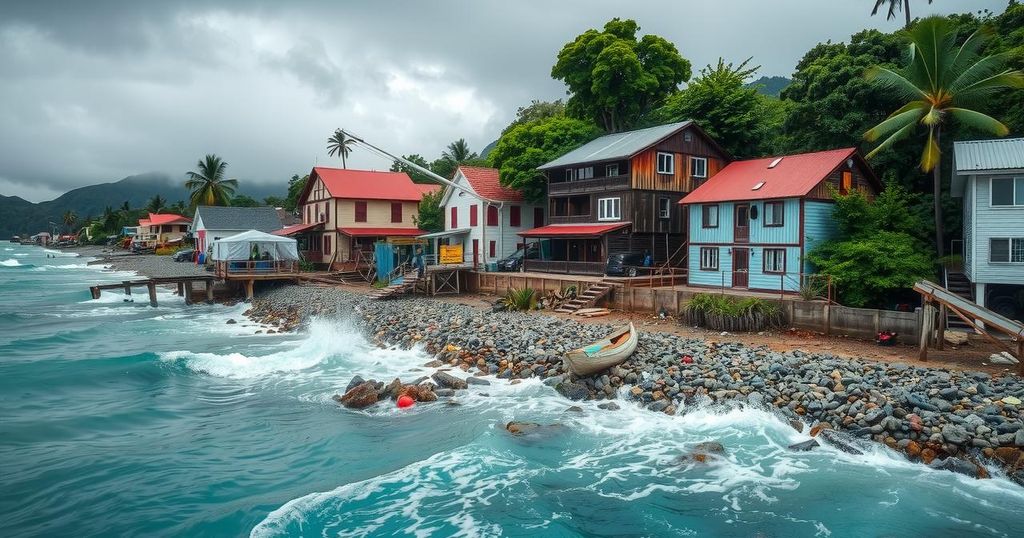Mayotte Cyclone Disaster Highlights Brazil’s Call for Climate Action

Brazil has called for increased global adaptation efforts to climate change following Cyclone Chido’s devastation in Mayotte, which resulted in significant loss of life. The Brazilian government forefronts international calls for ambitious climate action and emphasizes the urgency of addressing the impacts of extreme weather as it prepares to host COP30 in 2025.
The recent cyclone disaster in Mayotte, a French archipelago in the Indian Ocean, has underscored the urgent necessity for global adaptation to climate change, according to Brazilian officials. Acknowledging the tragedy wrought by Cyclone Chido, which has reportedly resulted in hundreds of fatalities, Brazil extended its condolences to the victims’ families and called on other nations to strengthen their commitment to combat the consequences of climate change. As Brazil prepares to host COP30 in Belém in 2025, the nation emphasizes international cooperation to mitigate the impacts of such extreme natural events.
The Brazilian government, under the leadership of President Luiz Inácio Lula da Silva, has recently prioritized tackling climate change by implementing measures to curb deforestation in the Amazon Rainforest, a vital carbon sink. At the COP29 summit, Brazil actively advocated for more robust financial assistance from developed nations to support poorer countries in adapting to climate change. With the significance of this issue heightened by the Mayotte disaster, Brazil reiterates the need for increased global action to address the challenges posed by climate change.
The 2023 cyclone in Mayotte exemplifies the escalating frequency and severity of extreme weather events attributed to climate change. As global temperatures rise, nations are experiencing more frequent and intense natural disasters, which necessitates a shift towards adaptive measures. Brazil, recognized for its leadership in environmental issues, is positioning itself as a key advocate for international climate action, particularly as it prepares to host significant climate conferences in the coming years, including COP30. The country’s commitment to reducing greenhouse gas emissions and combatting deforestation highlights the proactive steps being taken to address this urgent global concern.
In conclusion, the catastrophic impact of Cyclone Chido in Mayotte serves as a critical reminder of the dire need for collective international action to effectively adapt to climate change. Brazil’s call for enhanced efforts and its leadership in climate discussions signify the recognition of the urgent challenges posed by extreme weather events. As the nation prepares to facilitate future discussions on climate action, it aims to reinforce the importance of solidarity and financial support for developing countries facing similar challenges.
Original Source: www.barrons.com








